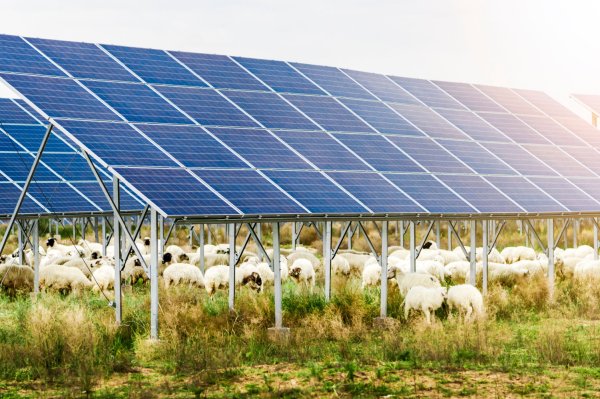
Animal Production Systems Group
Research of the Animal Production Systems Group focuses on unravelling the complexity of livestock systems, and exploring trade-offs and synergies of innovations regarding environmental impact, animal welfare, and economic viability, to design a more sustainable future
Chair holder
News
-
New definition for positive animal welfare
-
Individual pigs are inconsistent in their response to welfare issues
-
Save the date: Course Fundamentals of Animal Emotion in March 2025
-
Rianne van Zandbrink: The farmers in PAVEx are inspired by target-driven management
-
Positive Animal Welfare Team use Research Award for fruitful retreat
-
Cum laude PhD degree awarded to Jacinta Bus
-
Polder rice in the Netherlands: will it succeed this year?
Education
In our specialisation students learn to describe, analyse and explore the role of livestock in sustainable food systems.
Research themes
-
Livelihood
This theme relates to social and economic aspects of animal production. A major part of this work is done in tropical countries. Especially in those countries, livestock is not only kept for food production. Therefore, our works focusses on financial security and the production manure. In Europe, our work focuses on nature inclusive agriculture, a way of farming that produces food with respect for the ecosystem, while generating a decent income.
-

Animal welfare
This theme deals with the interaction between animals and their environments, and with the impact this has on animals. Keeping livestock has ethical challenges, for example animal welfare, or the ethical issues of exploiting animals for our own benefit.
-
Environment
This theme is about climate change, pollution, and biodiversity. Livestock contributes to climate change and pollutes water and air, because of emissions related to feed production and to manure, and because of enteric fermentation, which causes methane emissions from the gut. Livestock is responsible for 14.5 percent of global greenhouse gases.
Latest publications
-
A consensus on the definition of positive animal welfare
-
Integrating crop and dairy production systems : Exploring different strategies to achieve environmental targets
-
How to use residual biomass streams in circular food systems to minimise land use or GHG emissions
-
Assessing nitrogen circularity in food systems in the North China Plain
-
The effect of alternative agricultural practices on soil biodiversity of bacteria, fungi, nematodes and earthworms : A review